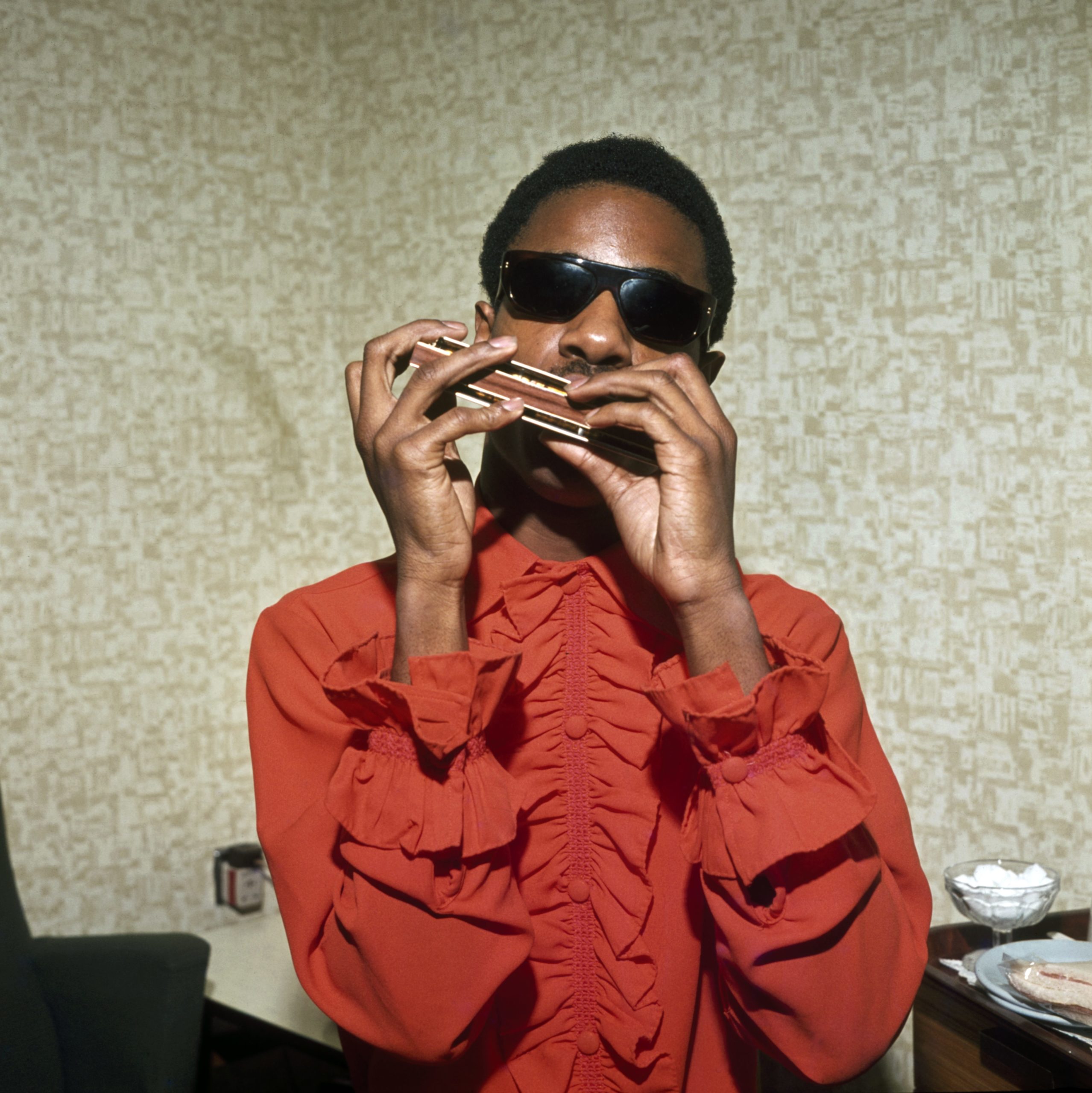
No one knows love like Stevie Wonder.
The 72-year-old, whose birthday is today, understands the ecstasy, and anguish, of true passion and has graciously shared his experiences since the early 1960s. Because of Wonder’s comprehension of matters of the heart, and his masterful musicianship, people are able to identify with one another a bit easier. Stevie Wonder has shown us how to relate in the most intimate way, and also pushed us to confront the social constructs that prohibit us from loving one another.
“Hey, just love. Just love. That’s the most important thing: Just love. That’s what’s gonna see us through.” —Stevie Wonder to NPR, 2017
For every act and emotion that comes with love — reflections on the fact it’s been lost (but the joy that it was experienced at all), the sting of your lover finding comfort with someone else, or the birth of a child — there is a Stevie Wonder song to guide you. You’re never alone, because you know he’s wandered down that same path and documented the details of every feeling along the way.

But love isn’t just tales of soaring hopes and past relationships. Its loud protests, pain, and putting pressure on America to do right by the Black community — in G major. Like his contemporaries, Marvin Gaye, Nina Simone and Aretha Franklin, Wonder’s music accompanied the civil rights movement during the 1960s. Even after the civil rights movement “ended” with the death of Martin Luther King, Jr. and passage of the Fair Housing Act into law in 1968, Wonder continued to prioritize the needs and struggles of Black Americans through his music.
In his 1973 song “Living for the City,” Wonder tells the story of a Black man and his family who live in a Mississippi ghetto. We follow the song’s subject as his parents deal with unfair labor wages and through experiences with employment discrimination. He later finds himself in a decade-long prison sentence after moving to New York City and being immediately finessed due to his own naiveté. The narrative intersects with the time of The Great Migration, wherein Black people, beset by violent racism and poverty in the Deep South, moved to the north in hopes of a better life. Yet although his intentions were pure, we realize that since he is a Black man, the game was always rigged and that nothing, not his earnestness or ambition, could save him.
The most haunting part of Wonder’s “Living for the City” is that it could’ve been any of our grandparents in the man’s shoes, but that is also its power. Stevie Wonder weaves distinct stories that can be applied to a multitude of people’s lives, with the knowledge that they will be encouraged to seek change. For what greater love is there than the mobilization of Black people?
Stevie Wonder taps into the human ability to dig deep within ourselves and source love, regardless of external circumstances. We’ve watched him harmonize himself through heartache, sing honor into existence (his rendition of “Happy Birthday” helped Martin Luther King, Jr.’s birthday become a federal holiday) and fight for our rights, even when it wasn’t popular. He is the embodiment of love in its rawest form, for he knows that it’s the only way we’ll make it through.